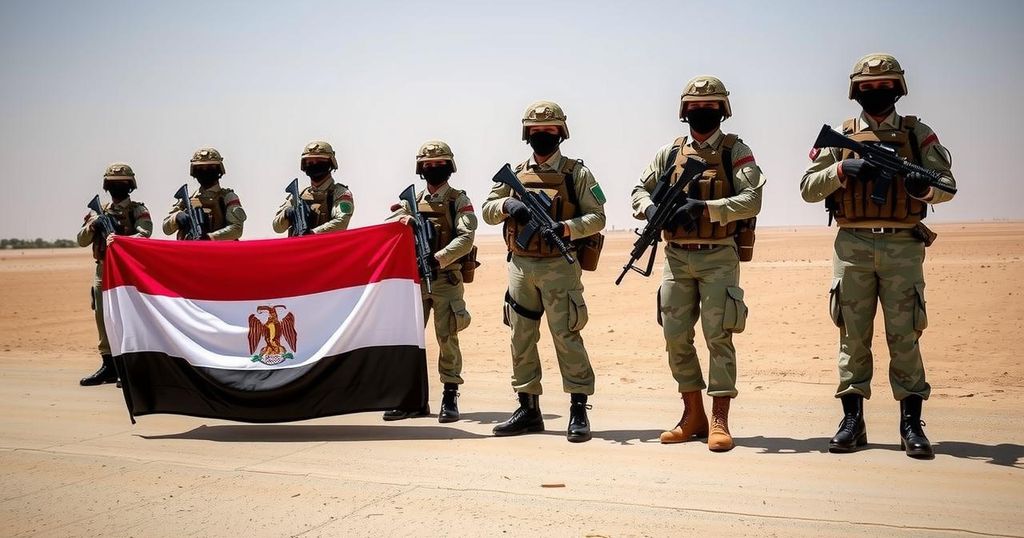Egypt will join a new African Union peacekeeping force in Somalia, following a request from the Somali government, amid rising tensions with Ethiopia. The announcement was made by Foreign Minister Badr Abdelatty, who highlighted Egypt’s commitment to Somalia’s sovereignty. This move aligns with recent efforts to enhance military cooperation between the two nations and aims to combat threats from Islamist insurgents in the region.
Egypt has announced its intention to participate in the new African Union peacekeeping mission in Somalia, following an invitation from the Somali government and support from the African Union Peace and Security Council. During a press conference in Cairo, Foreign Minister Badr Abdelatty emphasized Egypt’s commitment to Somalia’s sovereignty, particularly in the context of recent tensions arising from Ethiopia’s maritime deal with Somaliland, which has increased Cairo’s alignment with Mogadishu. This move precedes the transition from the current African Union Transition Mission in Somalia to the newly established African Union Support and Stabilization Mission in Somalia, aimed at combating the threat posed by Islamist Al-Shabaab insurgents.
The partnership between Egypt and Somalia signifies a strategic alignment amid regional conflicts, especially against the backdrop of Ethiopia’s controversial Grand Ethiopian Renaissance Dam project, which has raised concerns for Egypt regarding its water supply. This evolving relationship has also seen recent developments, including military cooperation agreements and a regional alliance formation involving Eritrea and Somalia, further isolating Ethiopia in the regional landscape. Additionally, negotiations mediated by Turkey have recently resolved a prolonged dispute between Somalia and Ethiopia, allowing for Egypt’s involvement to be welcomed by the Somali government.
Although the extent of Egypt’s participation in the peacekeeping operation remains unclear, the continued dialogue and strengthening of ties between Cairo and Mogadishu are indicative of a broader strategy to enhance security and stability in the Horn of Africa. The successful endeavors of the Turkish government in brokering peace between Somalia and Ethiopia, celebrated by various international stakeholders, reinforces the need for collaborative efforts among regional powers to address ongoing challenges in the area.
The situation in the Horn of Africa has been characterized by rising tensions, particularly between Egypt and Ethiopia, especially regarding issues related to water resources stemming from the Nile River. The signing of a maritime agreement by Ethiopia with the breakaway region of Somaliland has heightened these tensions and influenced Somalia’s diplomatic stance. Moreover, Egypt’s increasing involvement in Somalia reflects a strategic shift in the region’s dynamics, as nations seek to align themselves amidst conflicts over territorial integrity and resource management. The role of international actors, such as Turkey, in mediating disputes further underscores the complexity of the regional landscape and the importance of peacekeeping missions in providing stability.
Egypt’s decision to join the new African Union peacekeeping force in Somalia is a significant step in fostering regional security and collaboration, particularly in light of ongoing tensions with Ethiopia. The incorporation of Egypt into this peacekeeping initiative illustrates both nations’ commitment to Somalia’s sovereignty and stability, while also reflecting a broader strategic partnership aimed at addressing shared concerns in the Horn of Africa. As regional alliances shift, continued cooperation among Egypt, Somalia, and other partners may prove essential in navigating the complexities of regional politics and security challenges.
Original Source: www.barrons.com






